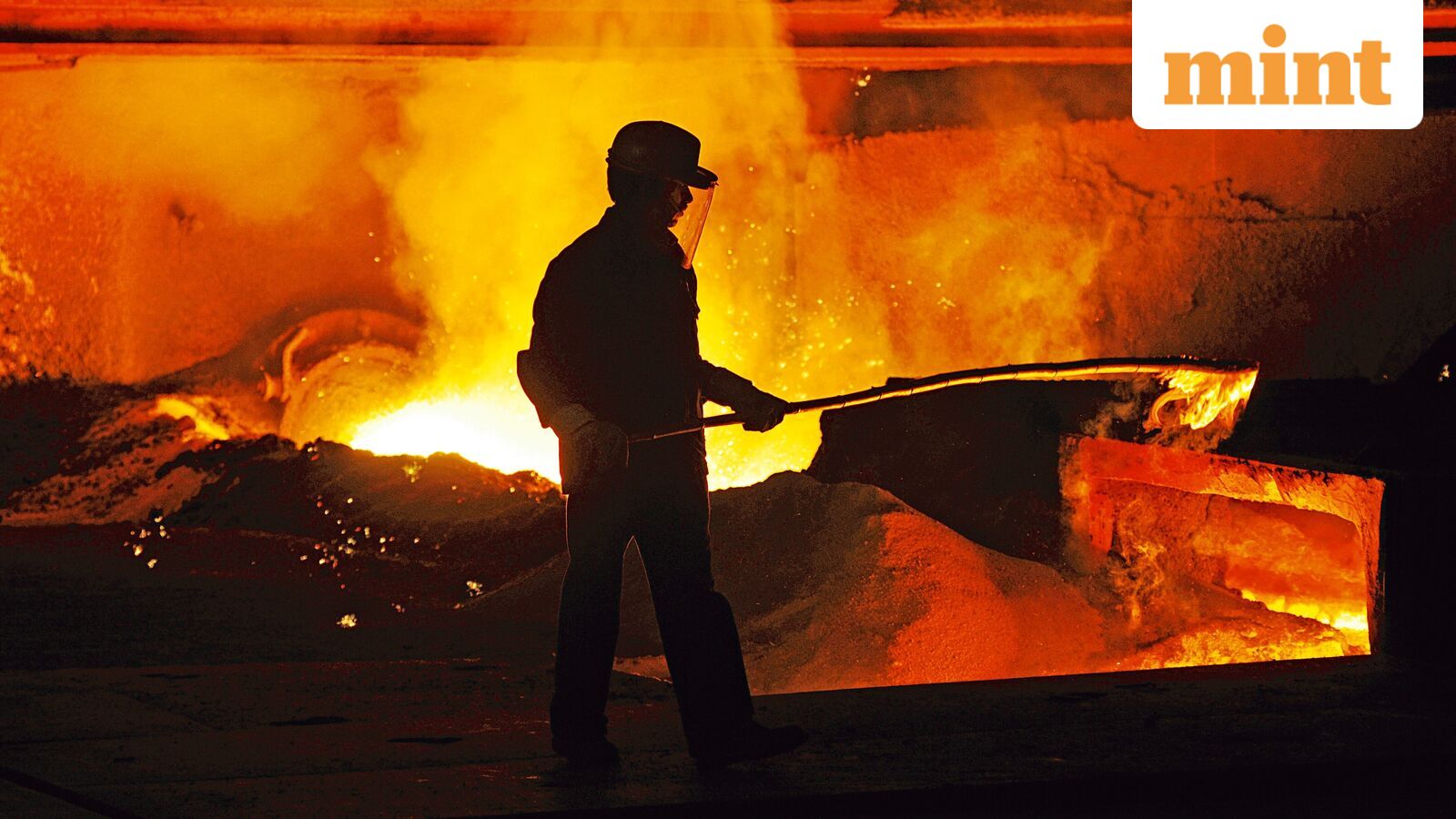Lloyds Metals has to invest ₹20,000-25,000 crore into a product for which demand has hit a low globally and prices are crashing. A primary steel company produces steel from raw materials such as iron ore rather than from scrap metal, making its operations more price-sensitive.
Lloyds will also have to overcome high logistics costs as its eastern operations are located far from the coast and from steel consumers, according to industry experts.
That’s not all—the company will also have to deal with social risks as its plants are located in areas prone to Maoist insurgency.
“It’s a capex-heavy industry and if debt is involved there is an impending execution risk,” said Suman Kumar, vice president for metals and mining at financial services firm Philip Capital. “The prospect of further brownfield expansion needs to be watched.”
But Lloyds Metals may have some aces up its sleeve, its promoters and analysts said.
For one, the company’s mines in Maharashtra’s Gadchiroli district have high-grade iron ore that can help it reduce the cost of conversion to steel. Lloyds has also invested in an 85km slurry pipeline to carry ore to one its two planned steel plants.
Two, the company has a 34 megawatt in-house or captive power plant and is investing in 470MW of additional captive power capacity.
The key inputs for steelmaking are iron ore, coking coal and power. With captive mines and power plants, Lloyds will have to contend with procuring only one key input from the open market.
“The main challenge for Lloyds is importing coking coal, since they are inland in Maharashtra. But beyond that, they have their own iron ore mines, so one major raw material is already secured,” said Dhruv Goel, chief executive of Big Mint, a market intelligence firm.
“For Lloyds, the proximity to the market and ownership of iron ore mines create more opportunities than challenges, making them well-positioned compared to others,” he said.
Philip Capital’s Kumar concurred. “With captive iron ore mines, manageable coking coal logistics, and strong backward integration, sector growth could present a significant opportunity for them.”
Lloyds’s integrated steel plan
Lloyds has planned two primary steel units. A 3 million tonne per annum (MTPA) hot-rolled coil (HRC) steel plant at Konsari in Gadchiroli, and a 1.2 MTPA wire rod unit at Ghugus in Chandrapur district, also in Maharashtra.
The blast furnace for the Ghugus plant will be operational by the end of 2027 or early 2028, said B. Prabhakaran, the company’s co-promoter and managing director. The Konsari plant’s blast furnace is expected to be fired up by 2029-30, he said.
The two plants will involve investments of ₹20,000-25,000 crore over the next five years, said Prabhakaran, who earlier made his fortunes mining for iron ore in Odisha. Lloyds has already invested about ₹5,000 crore to construct the slurry pipeline and a pellet plant, he said.
The investments will largely be funded from internal accruals, he said. The company reported revenue of ₹6,773 crore and profit of ₹1,450 crore for 2024-25. In FY24, Lloyds made a profit of ₹1,243 crore on a revenue of ₹6,575 crore.
Lloyds will also explore the equity route to raise capital. Debt will be the last option, Prabhakaran said. “We would like our debt profile to be as limited as possible. Less than our ebitda’s.”
The company reported earnings before interest, taxes, depreciation and amortization (ebitda) of ₹2,004 crore for FY25,up from ₹1,781 crore in the year prior.
As of March, Lloyds had net debt of ₹756 crore.
Before Lloyds, NMDC Steel Ltd was incorporated as a primary steel-making subsidiary of NMDC Ltd in 2015. However. it began commercial production at its Nagarnar steel plant in Chhattisgarh only in 2023.
Once Lloyds’s blast furnaces fire up, it will be catapulted into the league of steel bigwigs like Tata Steel Ltd and JSW Steel Ltd, the biggest primary steel companies in India.
In terms of scale, Lloyds’s nearest peers will be NMDC Steel, which has a 3 MTPA capacity, and ESL Ltd (1.5 MTPA).
The partnership
Lloyds Metal and Energy is the merger of two groups. Led by the Gupta family, the company in July acquired just under 80% stake in Thriveni Earthmovers, which is promoted by Prabhakaran. Earlier, Thriveni was a mine operator for Lloyd’s Surjagarh iron ore mine in Gadchiroli. The business was then subsumed into Lloyds.
Now, Prabhakaran and Rajesh Gupta both serve as managing directors of Lloyds Metals And Energy.
“I take care of the operation of the plant and construction of the plant in Gadchiroli. He (Gupta) takes care of marketing and other corporate affairs,” Prabhakaran said.
The Lloyds stock has lost more than 3% this year. On Tuesday, its shares fell 2.8% on BSE to end at ₹1,221.00 apiece, while the Sensex ended 0.12% lower. The company’s market capitalization is just over ₹64,000 crore.
#Lloydss #steel #bet #faces #trifecta #challengesdemand #costs #Maoists


